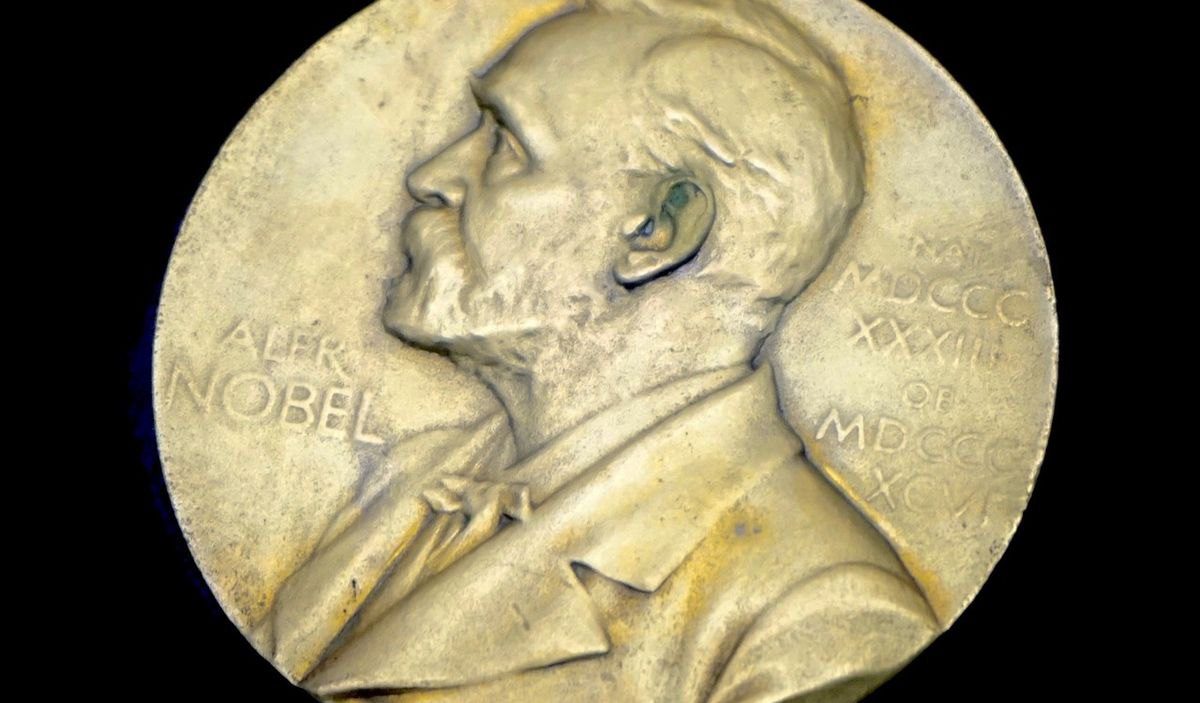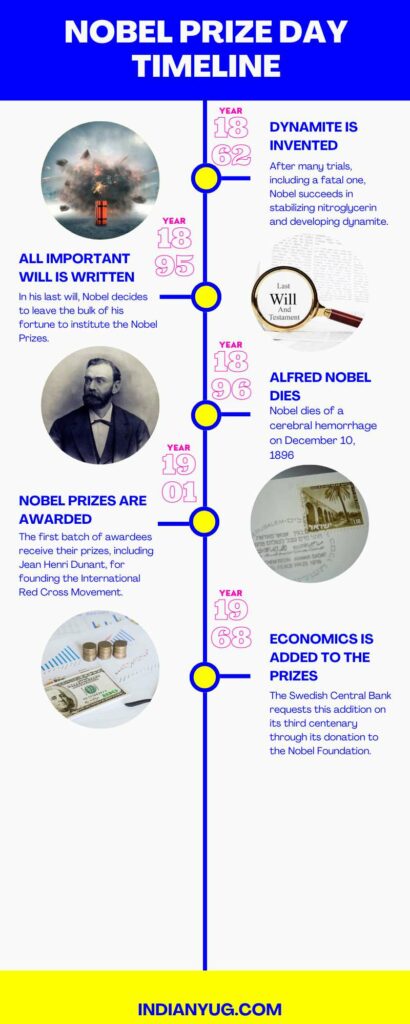Nobel Prize Day is an annual event that takes place on December 10th, the anniversary of the death of Alfred Nobel, the Swedish inventor, and philanthropist who established the Nobel Prize.
Nobel Prize is one of the most well-known and prestigious awards that is given to individuals and organizations who have made significant contributions in the fields of physics, chemistry, physiology or medicine, literature, and peace.
On Nobel Prize Day, the winners of the Nobel Prize are declared and awarded their prize at a ceremony in Stockholm, Sweden.
The ceremony is attended by dignitaries, government officials, and other VIPs from around the world. The winners of the Nobel Prize receive a medal, a diploma, and a cash prize of millions of dollars.
In addition to the ceremony in Stockholm, Nobel Prize Day is also observed in other parts of the world. In many countries, lectures and events are held to honor the winners of the Nobel Prize and to discuss the significance of their work.
These events are attended by scientists, scholars, and members of the general public who are interested in learning more about the Nobel Prize and the contributions of its winners.
The Nobel Prize has been awarded to individuals from over 70 different countries. The United States has the most Nobel Prize winners, with over 400 individuals and organizations having been awarded the prize.
History of Nobel Prize Day
Alfred Nobel was born to impoverished parents in Stockholm, but his father was a descendant of a very highly respected Swedish scientist and writer, Olaus, or Olof, Rudbeck.
His father was an engineer himself and Alfred Nobel expressed an early interest in engineering and explosives in particular.
This curiosity turned into further exploration and major achievements, with Nobel becoming interested in stabilizing the unpredictable explosive, nitroglycerin, as early as his teenage years.
Despite one of his brothers perishing in a tragic accident involving this pursuit, Nobel persisted with his work, shifting the factory base to a more secluded area, and ultimately succeeding in inventing dynamite as a superior and more stable version of nitroglycerin.
Alfred Nobel went on to invent an even better alternative to dynamite in the form of gelignite. This became a staple in mining operations and made Nobel financially successful.
Nobel also invented weaponry for military purposes and started companies to sell these. When a French newspaper carried a false obituary of Nobel, criticizing him for his role in warfare, he re-evaluated his life’s goals and decided to use his earnings to set up a prize that recognized the best in humanity.
Nobel was always a pacifist and was deeply troubled by the destructive potential of his inventions. In his will, he specified that the bulk of his fortune should be used to establish the Nobel Prize, which would be awarded to individuals who have made significant contributions in the fields of physics, chemistry, physiology or medicine, literature, and peace.
Nobel died in San Remo, Italy on December 10, 1896, at the age of 63. He was buried in the family plot in Norra Begravningsplatsen cemetery in Stockholm, Sweden.
Nobel’s will was controversial, and it was challenged in court by some of his relatives. However, the will was eventually upheld, and the Nobel Foundation was established to manage the assets that Nobel left in his will.
The prizes in the different categories reflect his own interests in various fields. Apart from being an entrepreneurial engineer, he was also a writer.
While Nobel is still criticized for the role he played in furthering military technology, the Nobel Prizes, including the Prize for economics, which was added later, are considered the most prestigious achievement for practitioners in those fields.
Nobel was a prolific inventor, and he held over 355 patents for his inventions. Some of his most notable inventions include dynamite and smokeless gunpowder.
The first Nobel Prize was awarded in 1901, and since then, the prize has been given out every year, with the exception of a few years during World War I and World War II.
There have been many notable winners and nominees of the Nobel Prize over the years. Some of the most notable winners include:
- Albert Einstein – Einstein was awarded the Nobel Prize in Physics in 1921 for his theory of relativity and his work on the photoelectric effect. Einstein’s work has had a profound impact on the field of physics, and he is widely considered one of the greatest scientists of all time.
- Marie Curie – Curie was awarded the Nobel Prize in Physics in 1903, and the Nobel Prize in Chemistry in 1911. She was the first person to win two Nobel Prizes, and the first woman to win a Nobel Prize. Curie’s work in the field of radioactivity has had a major impact on the field of science and medicine.
- Mahatma Gandhi – Gandhi was a political and spiritual leader in India who played a key role in the country’s struggle for independence from British rule. Although he was never awarded the Nobel Prize, Gandhi was nominated for the Nobel Peace Prize five times between 1937 and 1948.
- Martin Luther King Jr. – King was awarded the Nobel Peace Prize in 1964 for his efforts to promote civil rights and racial equality in the United States. King’s work as a leader of the civil rights movement had a profound impact on American society, and he is widely regarded as one of the greatest figures in American history.
- Mother Teresa – Mother Teresa was awarded the Nobel Peace Prize in 1979 for her work with the poor and the sick in Calcutta, India. Mother Teresa founded the Missionaries of Charity, a religious order that provides care and assistance to those in need. She was known for her compassion and selflessness, and she continues to be an inspiration to people around the world.
Overall, the Nobel Prize has been awarded to many prominent individuals and organizations who have made substantial contributions in various fields. These individuals and organizations are recognized for their accomplishments and their mark on the world.
Nobel Prize Day is an important event in the world of science and scholarship. It is a day to celebrate the achievements of those who have made significant contributions to their fields and to the betterment of humanity.
It is also a day to reflect on the work of Alfred Nobel and his vision for a world that is peaceful and prosperous.




